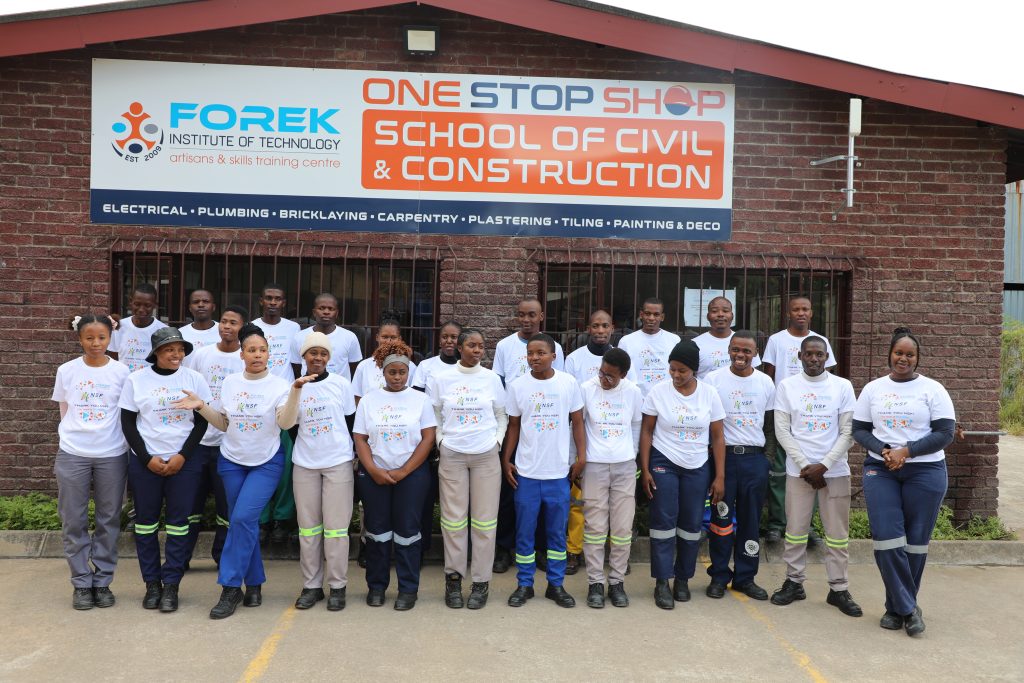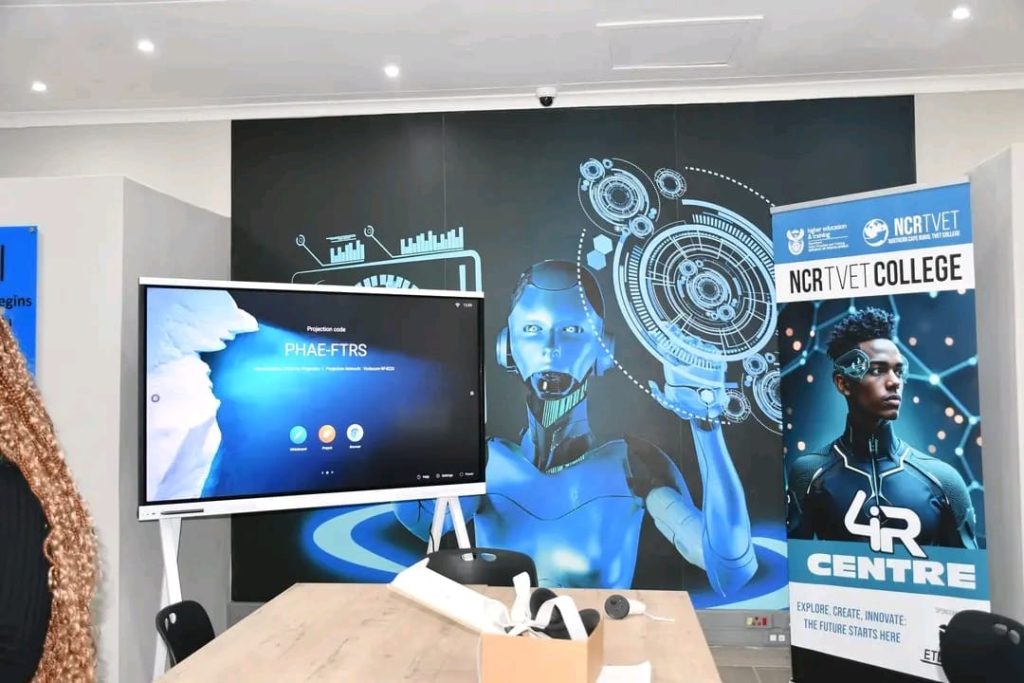Public TVET colleges in South Africa will receive an R2,2 billion injection from the National Skills Fund (NSF) when the entity finalises funding applications for the NSF Public College Capacity Building and Occupational Programmes Phase III Funding Window.
The funding is for occupationally-directed programmes which spans apprenticeships, learnership, skills programmes, work-integrated learning, capacity building and specialised equipment.
NSF Executive Officer Mvuyisi Macikama says the NSF’s recent allocation to technical and vocational education and training (TVET) colleges over the next three years follows the R6,7 billion already invested by the NSF in the public TVET college sector, all of which aim to support the capacity building, expansion and growth of the country’s 50 public TVET colleges.
The NSF has funded the public TVET colleges since 2013, a concerted effort by the entity to support the Department of Higher Education and Training (DHET) to create equitable access to quality post-school education and strengthen the TVET college positioning and programme.
The Phase III funding injection builds on the existing interventions funded by the NSF, such as the TVET College Connectivity Project (TCCP) that will enable the creation of a new realm of technologically enabled education and training, capacity building for campus managers, the TVET campus construction projects in the Eastern Cape, KwaZulu-Natal, Limpopo and Mpumalanga. The NSF also co-funded with the sector education and training authorities (SETAs) and the artisanal Centres of Specialisation (CoS) Programme, which is now in its third year.
“All public TVET colleges submitted applications in this window; 40 of the 50 college applications have been processed through the NSF governance structures, and the remaining 10 will be concluded at the end of March,” Macikama says.
“The next step will be to obtain the approval of the accounting and executive authorities – the director-general of Higher Education and Training and the Minister of Higher Education, Science and Innovation, respectively – for the funding allocation per college and enter into contractual agreements.”
The NSF Public TVET College Capacity Building and Occupational Programmes Phase III Funding Window opened on 4 May 2020 and closed on 30 September 2020.
Most college applications were submitted to the NSF at the end of September, and this, coupled with instances where the NSF assisted colleges that did not submit adequate proposals, contributed to the delays in concluding the funding processes.
The funding allocations in the new window have been informed by college requests, the spending history of previously funded initiatives, performance history in terms of throughput, learner success and the relevance of interventions given the localities, regions and/or provinces they are servicing. A special allowance for rural-based colleges is included in the funding allocations for 2021 to 2024 to contribute to the government’s district development model.
With 34 colleges having used half or more of their allocation from the NSF Phase II funding by the end of February 2021, the conclusion of the new funding application processes bodes well for the colleges’ enrolment plans for the next three academic years.
In February, R1,6 billion (67%) of the R2,3 billion of Phase II has been spent. Taletso in North West and Umfolozi in KwaZulu-Natal had utilised all their Phase II funding, followed by Boland in the Western Cape, which spent 97% of their expenditure. The Lovedale TVET College in the Eastern Cape has spent 96%.
NSF investment in public TVET colleges, 2013-2024
- R2,2 billion for occupationally-directed programmes: apprenticeships, learnership, skills programmes, work-integrated learning, capacity building and specialised equipment.
- R2,3 billion approved funding from 2016 to train beneficiaries in different learning programmes, including learnerships, occupational programmes, apprenticeships, skills programmes, National Certificate Vocational (NCV) and National Accredited Technical Education Diploma (Nated) programmes and work-integrated learning.
- R2 billion for funding learner enrolments in the NCV and Nated programmes from 2013 to 2015, in line with the call to the TVET college sector not to turn away deserving students because of limited funding for the ministerial approved enrolments. The NSF funding subsequently focused on occupational programmes and workplace-based learning for TVET college learners.
- R2,5 billion for constructing 13 new TVET college campuses in rural or semi-rural areas of the Eastern Cape, KwaZulu-Natal, Limpopo and Mpumalanga. The infrastructure development, financed by the NSF for R1,5 billion and sector education and training authorities (SETAs) for R1 billion, launched three campuses in 2019; construction works at 10 campus sites continued in 2021.
- R151 million for creating 26 Centres of Specialisation (CoS) for 13 priority trades at 19 public TVET colleges. The CoS apprenticeship programme has been operational since 2019 and is supported by the SETAs with a discretionary grant to participating employers; 94% of the budget allocated by NSF has been spent.
- R246 million for connecting all 256 TVET college campuses to the South African National Research Network (SANReN) through the TVET College Connection Programme for high-speed internet connectivity, to install campus Wifi and effectively gear up the public TVET colleges to play a meaningful role in the fourth industrial revolution.
- R519 million for strengthening financial management and human resource management capacity in the public TVET and community education and training college system in partnership with the South African Institute of Chartered Accountants (SAICA).
Picture: Shutterstock
The article was written by Khanyisa Ngewu, NSF Director: Public Relations and Communication, and first published in the TVET College Times March 2021 edition



